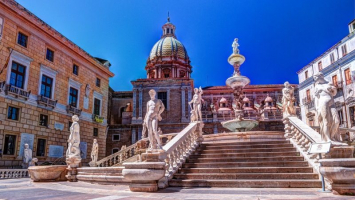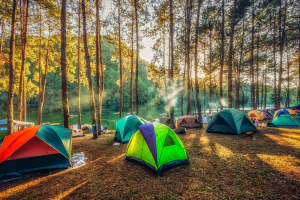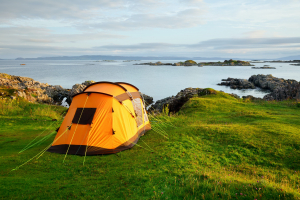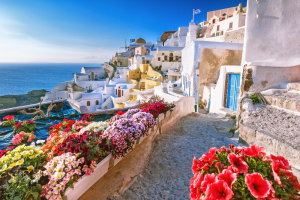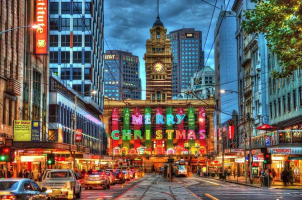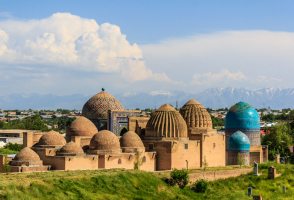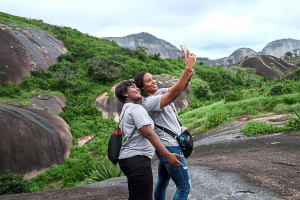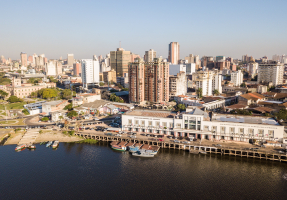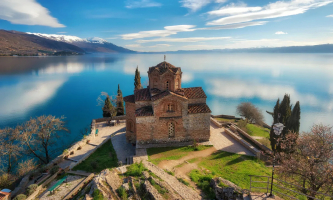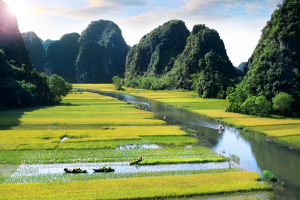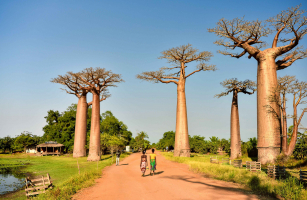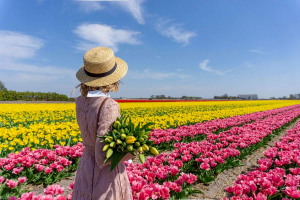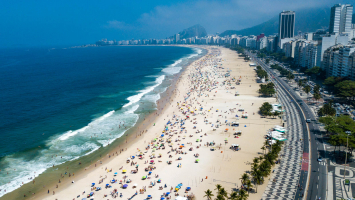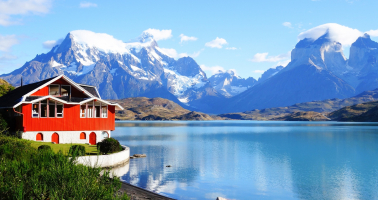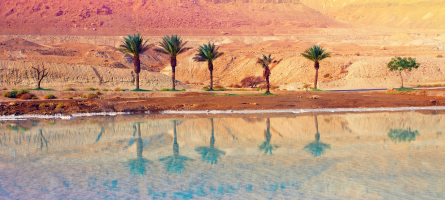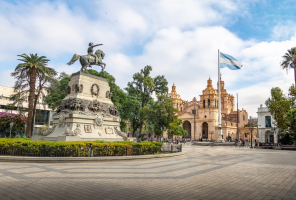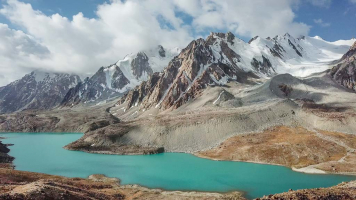Top 9 Reasons to Go to Zimbabwe
Many people have heard of Zimbabwe, but they frequently don't know very much about it. Whether it's a bad weather situation, the devaluation of their currency, ... read more...or internal politics, it doesn't always make the news for the appropriate reasons. And when considering an African vacation, it's not typically the first place that comes to mind. But don't be deceived by this. Zimbabwe is a really lovely place with a fascinating history, incredible animals, and some of the most charming people you're ever likely to meet. Here are great reasons to go to Zimbabwe.
-
Zimbabwe’s tourism industry has recently been growing in popularity. But unlike other surrounding countries in the region, Zimbabwe has opted for preserving the exclusivity of its safari trips. It favors quality rather than quantity. As a visitor, you will not encounter a mass number of tourists during your trip to savannas. You will share an unforgettable safari experience just with a handful of other visitors in Hwange National Park. This exclusivity makes your safari trips more tailored and personalized, allowing you to experience the marvels of the savannas at their best.
Hwange, Zimbabwe's largest game reserve (roughly 15,000 square kilometers), is home to more than 400 bird species and a hundred species of mammal, including thousands of elephants who trudge a migratory route from here to neighboring Botswana every year. Meanwhile, the second-largest reserve Gonarezhou (meaning “elephant's tusk” in the local Shona language) forms part of the even bigger Greater Limpopo ecosystem incorporating Kruger in South Africa and Mozambique's Limpopo, between which animals can move freely.
Between the two reserves, you are virtually guaranteed intimate game-drive encounters with zebra, giraffe, buffalo, baboons, and elephants by the hundreds. Only the sneakier big cats may elude your camera lens if you’re unlucky.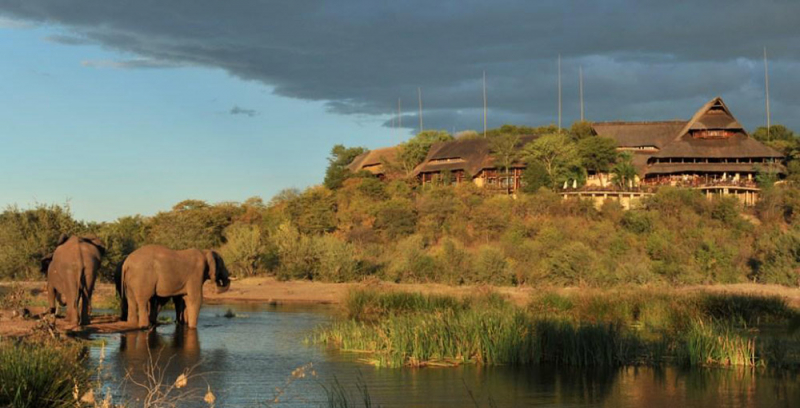
Africa Uncovered 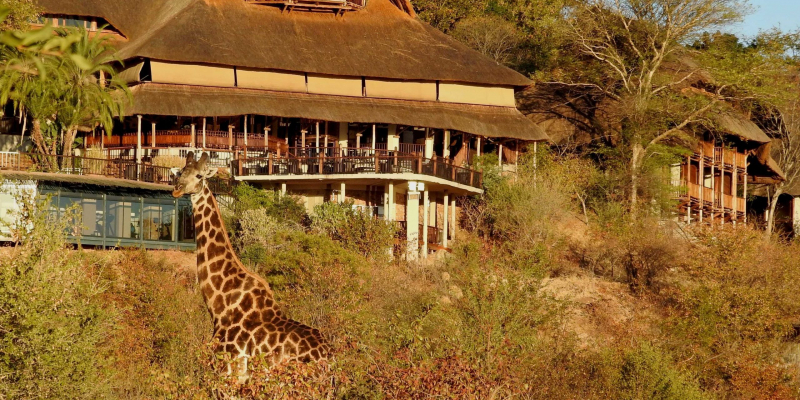
Victoria Falls Safari Lodge -
The wildlife of Zimbabwe is among the best in all of Africa. It includes several species of reptiles, mammals, and birds. Zimbabwe is home to a variety of animals, including lions and cheetahs. The nation is also home to significant herds of zebras, giraffes, buffalo, and rhinoceros. A rich historical culture coexists with the nation's abundant wildlife, and its greatest architectural gem, the ruined metropolis of Great Zimbabwe in Masvingo, serves as a symbol of both.
The country of Zimbabwe was named after this UNESCO World Heritage Site, which has been inhabited for more than a thousand years and served as the royal capital of the Kingdom of Zimbabwe between the thirteenth and the fifteenth centuries. Its roughly 2000-acre size provides enough photo opportunities, especially for its tall monolithic acropolis, which may be seen for miles, and the elliptical Great Enclosure with its distinctive conical tower monument.
You can spend a whole day wandering amid its ruins, climbing the acropolis, and hanging out with the resident baboons. And again, with few tourists on the scene (compared to Zimbabwe’s 90s boom years) you can pretty much have the run of the place on quieter days.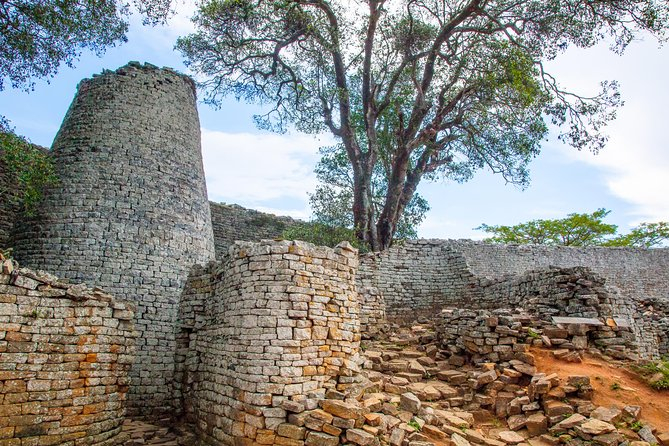
Viator 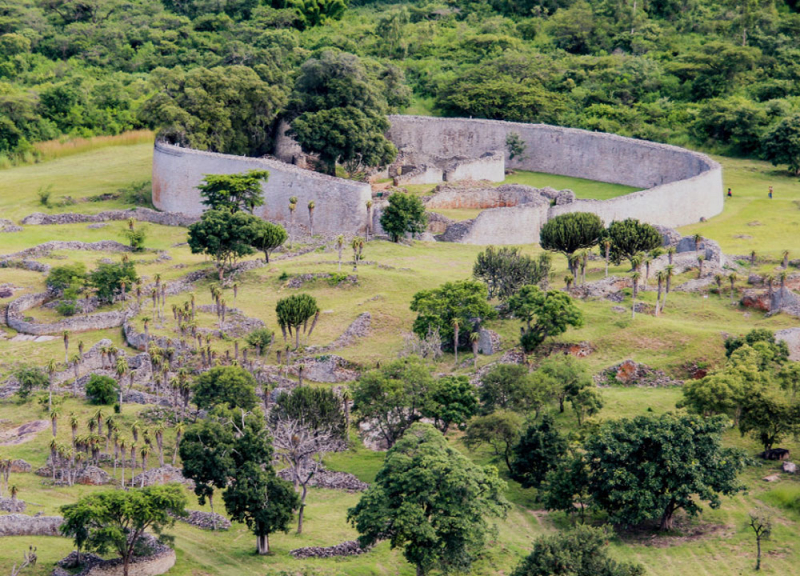
ZimLegends | Zimbabwean Legends -
As the greatest sheet of falling water in the world, Victoria Falls on the Zambezi River is one of Africa's, if not the planet's, most impressive natural wonders. They are twice as high as Canada's Niagara Falls. Locals refer to it as "Mosi-oa-Tunya," or "the Smoke that Thunders," because of its epic rumbling and iridescent mist clouds, which can be seen from 50 kilometers away and are really breathtaking up close.
If you really want to get involved, you can try abseiling, white-water rafting, bungee jumping, or flying above it all in a chopper or microlight. Its rivers and steep valley are a year-round playground for thrill-seekers.
This World Heritage Site captivates visitors as much today as it did explorer David Livingstone in the nineteenth century, and its surrounding area has been declared a National Park to protect against excessive commercialization.
Over the last ten years many visitors have limited their Zimbabwe experience to Victoria Falls alone, but hopefully now, as the tourism industry expands, they will continue to branch out to witness Zimbabwe’s full array of natural and historical wonders, and breathe life into its healing economy. It’s nothing less than its people deserve.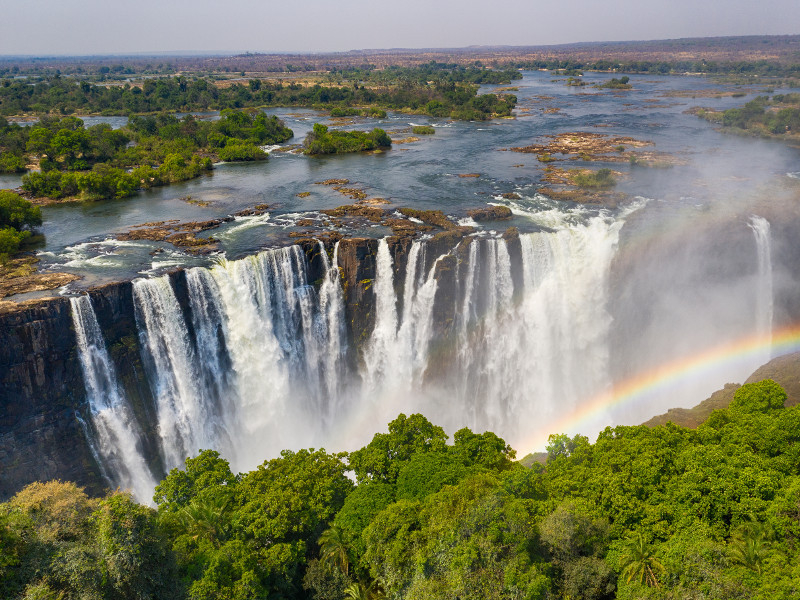
Travelstart 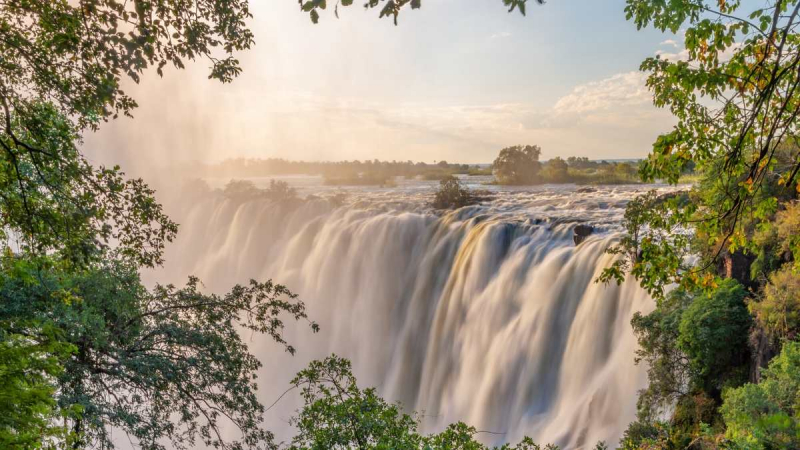
Robe Trotting -
Great Zimbabwe in Southern Zimbabwe is considered by many to be the birthplace of the African city-state and is an awe-inspiring place to visit, as are the Matobo hills (protected as a World Heritage Site). Here is Southern Africa's highest concentration of ancient rock art: 3500 sites dating back at least 13,000 years. Home to some of the best-preserved rock paintings in Africa, there is a spirituality about the Matobo Hills that calms and rejuvenates even the weariest and jaded of people.
The sea of hills are an array of remarkable granite features that have long had a significant impact on the area. Their enormous boulders and caverns offer a variety of natural shelters that have been used by humans since the Stone Age, inspiring many of them to create artwork on the rocks.
One of its most well-known caves, Nswatugi, has a gallery of animals skillfully painted on the back wall that dates to around 2000 years ago. Cecil Rhodes, the man who founded Rhodesia before it became Zimbabwe, is buried nearby on a hill so that he can always look out over the national park he loved. To fully see why you must see the captivating scenery for yourself.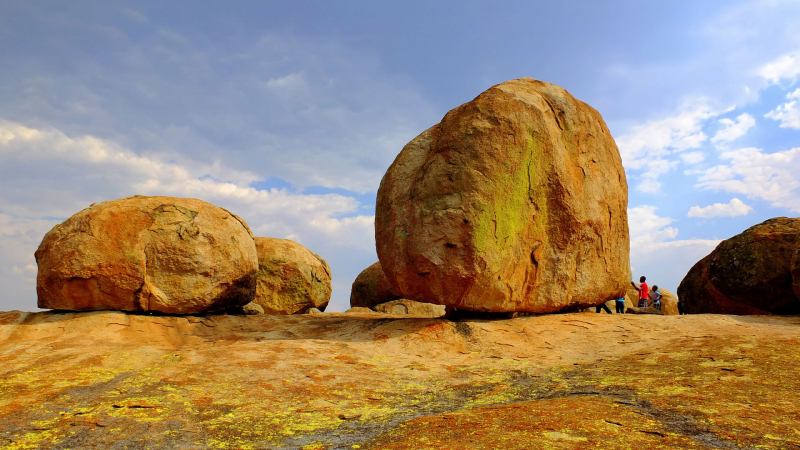
Natural World Safaris 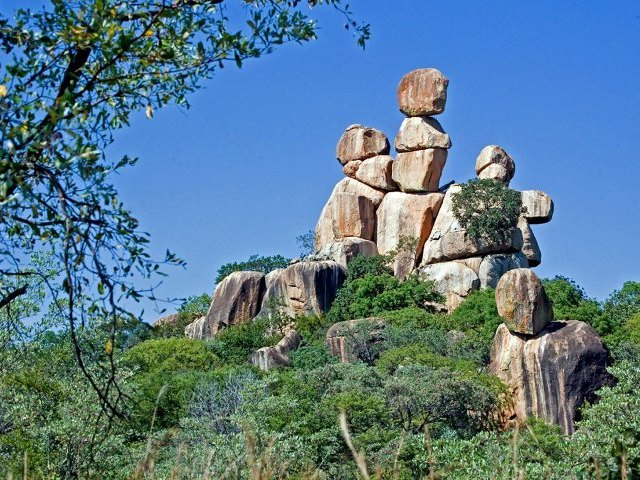
Victoria Falls Guide -
The city of Bulawayo is to Zimbabwe what Melbourne is to Australia: a second city with a more laid-back and elegant pace of life, with culture and history pervading it.
Numerous early Victorian structures that the city council preserves as heritage assets flank its broad avenues of trees. The interior of Zimbabwe's oldest licensed pub, the Exchange Bar, and the city's faded colonial facades combine to give Bulawayo the appearance of a frontier town. Inside its paneled walls, which are still covered in taxidermied animal heads and sepia photos, Rhodes conducted his business transactions. It is the ideal setting for an atmospheric beer break.
The Natural History Museum of Zimbabwe, the best museum in the country, is also located here and provides a captivating visual summary of the natural and political history of the nation. In fact, Bulawayo is one of the greatest places to stay as a base or central itinerary stop because it is the closest major city to Hwange National Park, the Matobo Hills, and Victoria Falls.
TripAdvisor 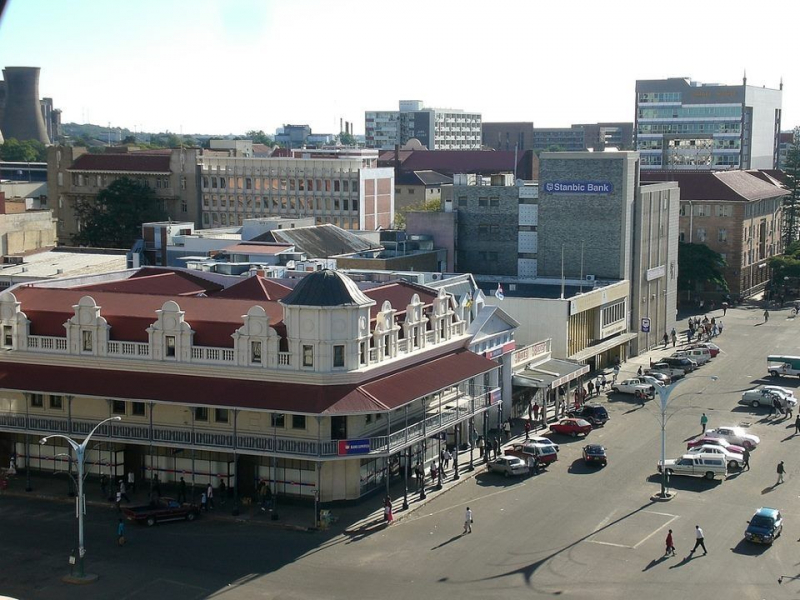
Pinterest -
Prepare to meet probably Africa's top tour guides. Safaris in Zimbabwe are well-known for having top-notch guides. A journey cannot be truly memorable and comprehensive without excellent guidance. Before they can start leading tourists, Zimbabwean tour guides must complete extensive training. Because of this, Zimbabwe is well known for having knowledgeable tour guides. They are able to recite the names of all the local species and provide background information.
The reasons are multi-faceted but the strictness of the Zimbabwean guiding exams combined with the fact that guiding is a comparatively well-paid career in Zimbabwe means that there are plenty of high-caliber candidates keen to undertake the rigorous training. In the dark years of Zimbabwe’s economic tsunami, they sought jobs in neighboring countries but with the resurgence of Zimbabwe’s tourism, many guides have returned to Zimbabwe.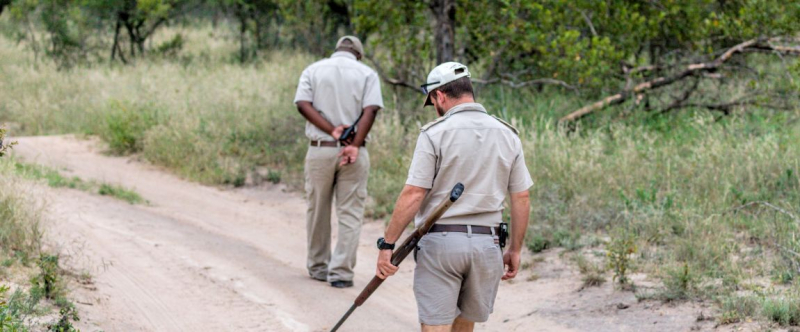
pickvisa.com 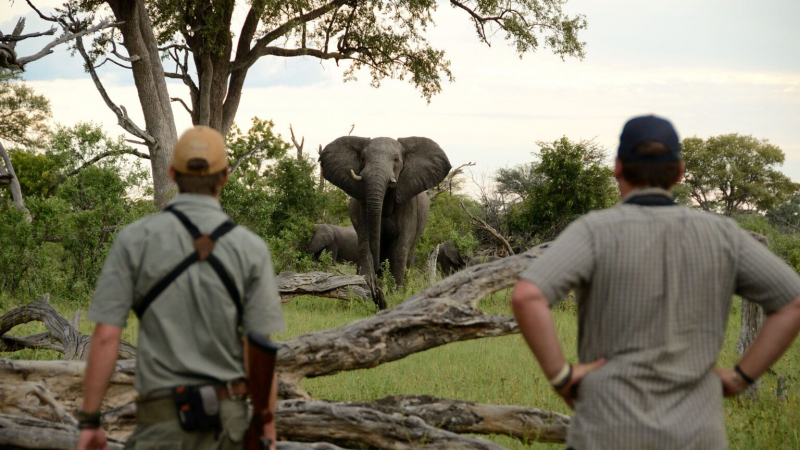
cedarberg-travel.com -
Apart from being attractive in terms of its wildlife, national parks, and nature, Zimbabwe is home to one of the friendliest people in Africa. Zimbabwe is currently a fairly open country for business after 37 years of Robert Mugabe's dictatorship. Zimbabweans are eager to show you everything that their nation has to offer, from breathtaking natural sights to unforgettable wildlife encounters. Numerous travelers praise the people of Zimbabwe and their incredibly welcoming attitudes toward tourists. Anywhere in the country, you will encounter a Zimbabwean smile, which is a source of delight. It is like in every Zimbabwean community that they have a great urge to smile at the visitors, shake their hands, and make sure that they get the best out of their trip.
Nowhere is the warmth and hospitality of the locals more evident than at a safari lodge. Expect to be welcomed in with open arms and big smiles. Safari guides also go through a challenging 4-5 year certification course, which is one of the most difficult on the continent. So you’ll be out spotting elephants with some of the world’s finest naturalists.
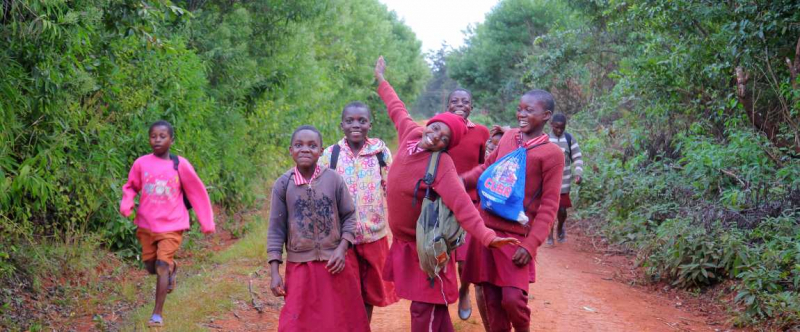
Pickvisa 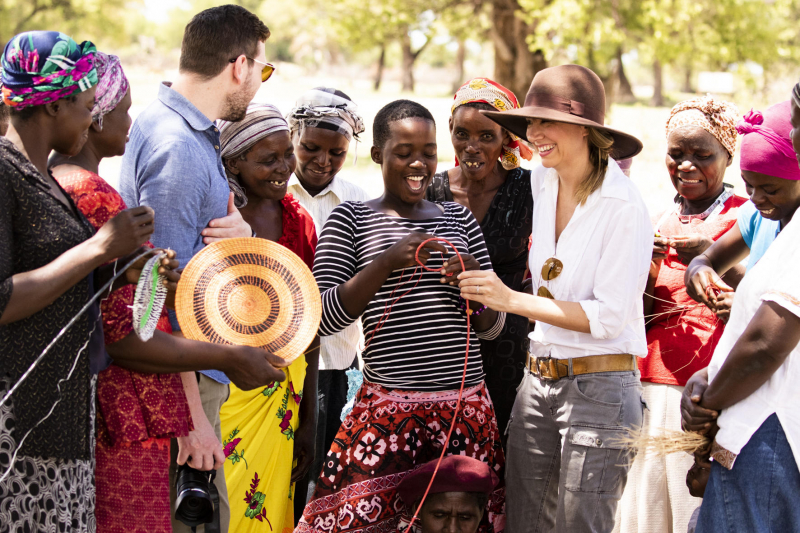
CAPTURED IN AFRICA -
We constantly strive to get the most value for our money. Nobody wants to overpay for anything they purchase or get overcharged for a tour. Zimbabwe safaris typically don't see the same high-season price increases as Botswana safaris (or Zambia). Additionally, Hwange and the Matobo hills are both easily reached by road. This indicates that prices are substantially higher in Zimbabwe, particularly during the tourist season from July to October.
Of course, having a safari trip is more expensive than hostel hopping in Asia or visiting some Eastern European countries. However, you should bear in mind that having a safari trip in Zimbabwe sometimes may be three-fifths of the price in Botswana or Zambia. Some safari camping tours in Zimbabwe are also all-inclusive at an affordable price. As the country is gradually gaining economic stability, it is a good idea to travel to Zimbabwe these days.
Wikipedia 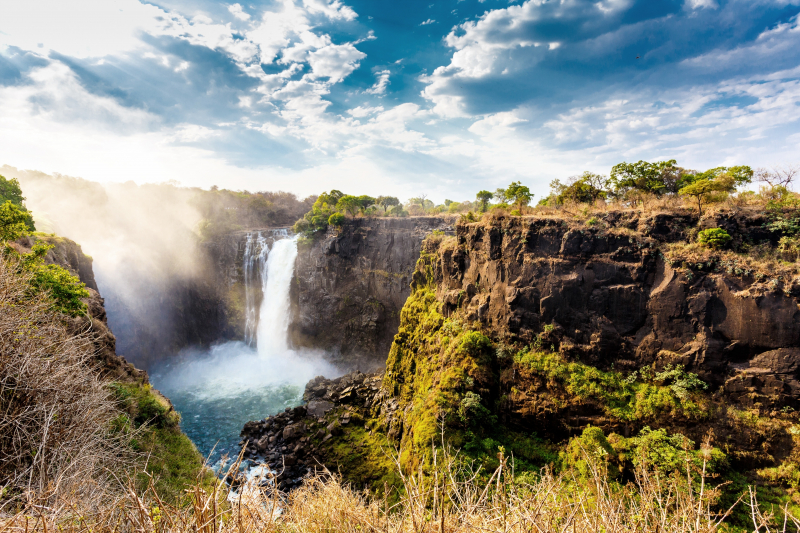
Expedia.com.vn -
Zimbabwe's cuisine, like that of nearly all other African nations, is distinguished by its potent and distinct flavors because most of the recipes are made with spices and herbs. The cuisine of this nation is incredibly varied and delicious, and dishes stand out not just for their flavor but also for how simple they are to prepare. The secret is to use premium raw materials.
The diet of the inhabitants of Zimbabwe consists primarily of meat products of all kinds. Different sorts of stews are prepared using chicken, pig, cow, goat, and sheep, along with a variety of vegetables and cereals. These foods can be made in their most basic form by being grilled or fried.
Another main ingredient in the diet of the Zimbabwean people is fish. Especially freshwater fish. Usually, they are cooked on the grill and eaten with rice or corn. Sometimes they are also prepared with different types of vegetables, both cooked and raw. Another of the most striking features of the cuisine of this country is the result of a balanced combination of British and traditional Zimbabwean cuisine. Vegetarian travelers will find a variety of sub-tropical products and very high-quality options.

Nomad Paradise 
Pickvisa











